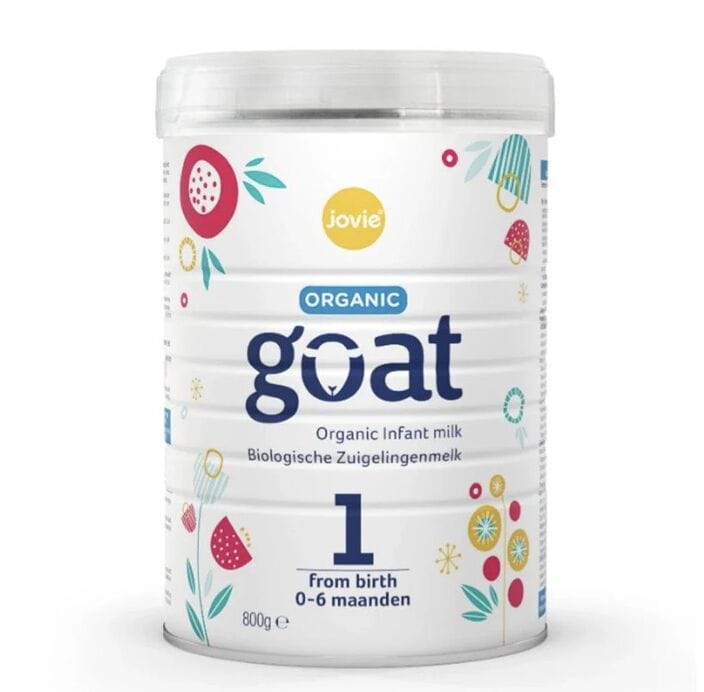Making the switch to organic baby milk can be a thoughtful step toward providing your little one with cleaner, simpler nutrition. But any transition — especially one involving a baby’s diet — deserves a gentle, well-informed approach. Babies are sensitive, and their tiny tummies might need a bit of patience and care as they adjust to something new. Whether you’re moving from breast milk or a conventional formula, there’s a smart way to make the shift with as little fuss (and gas) as possible.
LOCAL NEWS: 100 best places to work and live in Arizona for 2025
Your baby doesn’t need to go through discomfort just because you’ve decided to make a healthier choice. With the right timing, gradual changes, and a little observation, you can make this transition a smooth and stress-free one.

Know Why You’re Switching
Before you even open that first container of organic formula, it helps to be solid on your reasons. Some parents opt for organic formulas due to concerns about pesticide exposure or synthetic ingredients. Others prefer them because of sourcing transparency or closer alignment with breast milk components.
Understanding your own motivations will help you stay confident during the transition, especially if you hit a few bumps. Organic options may have slight differences in taste, smell, or texture compared to non-organic
brands — and your baby will notice. If you’re mentally prepared for a bit of resistance, you’ll be more patient through the adjustment phase.
Talk to Your Pediatrician First
Even if you’ve done all the research in the world, don’t skip this step. Every baby is different — some have dietary sensitivities, underlying conditions, or specific nutritional needs that should be considered before making a switch. Your pediatrician might even suggest a specific type of organic formula depending on your baby’s digestion, weight trends, or feeding habits.
It’s especially important if your baby has been on a specialized or hypoallergenic formula. In those cases, jumping straight to organic without professional input could lead to tummy trouble or nutritional gaps.
Make the Change Gradually
Babies thrive on routine. Tossing out their familiar formula one day and replacing it entirely the next is a recipe for fussiness — or worse, refusal to feed. The trick is to blend the new formula in slowly over several days, giving your baby’s digestive system time to adapt.
Here’s one effective way to go about it:
- On day one and two, mix 25% organic formula with 75% of the current formula.
- On days three and four, go for a 50/50 mix.
- Days five and six, increase to 75% organic.
- By day seven, transition to 100% organic formula.
This slow blend lets your baby get used to the new flavor and ingredients while minimizing the risk of constipation or stomach upset. Watch for cues — if your baby seems unusually fussy or their stools change dramatically, you may need to slow the transition even more.
Pay Attention to Reactions
While most babies adjust just fine, some might show signs of sensitivity. That’s not a reason to panic — it might just mean they need more time, or in some cases, a different formula. Look for red flags like persistent spit-up, rash, constipation, or diarrhea. These could indicate an intolerance to a particular protein or ingredient.
Note that organic doesn’t automatically mean hypoallergenic. Some babies might still react to cow’s milk proteins or lactose. Keep a simple food and symptom log during the switch to track any patterns. This can be helpful to discuss with your pediatrician if things don’t smooth out after a week or two.

Keep the Rest of the Routine Steady
Babies rely on consistency to feel secure. During this transition, avoid making too many other changes at once. If possible, keep feeding times, nap schedules, and sleeping arrangements unchanged. The more familiar everything else feels, the easier it will be for your baby to handle the change in what’s in the bottle.
That also means your attitude matters. Babies are surprisingly good at picking up on stress. If you’re anxious about the switch, your baby might sense it. Stay calm, offer extra cuddles, and treat the process like it’s just a new normal — not a big deal.
Be Ready to Adjust
If one brand of organic formula isn’t sitting right, it doesn’t mean the whole idea is off the table. Just like with regular formulas, different organic options use different protein sources or processing methods. Goat milk, A2 milk proteins, or soy-based blends might be better suited to some babies.
A bit of trial and error is normal. What matters is paying attention, staying flexible, and being responsive to your baby’s needs without feeling discouraged if the first attempt isn’t perfect.
Final Thoughts
Switching to organic formula is a decision rooted in care — and with the right approach, it doesn’t have to be stressful for you or your baby. Go slow, stay observant, and don’t be afraid to ask for help along the way. A smooth transition is absolutely doable, and soon enough, your little one will be happily sipping away without a second thought.




